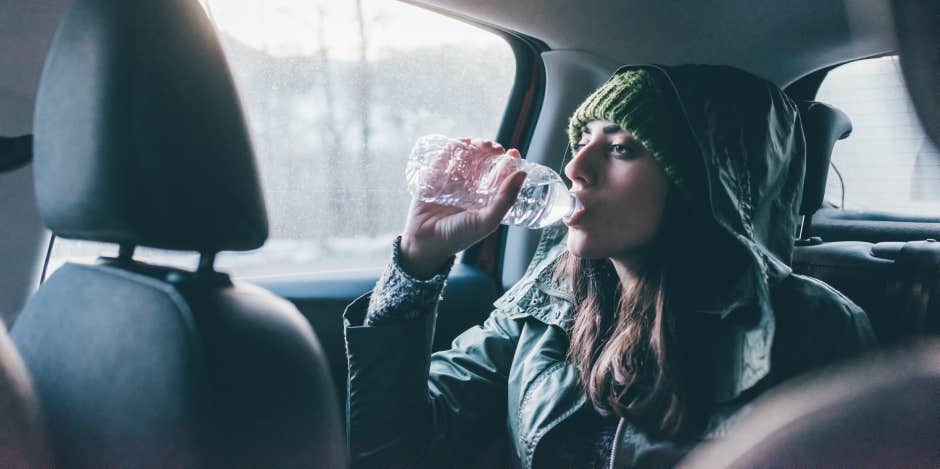Exactly How Much Water You Should Drink Each Day
Drink up!
 getty
getty By Dominique Michelle Astorino
Everyone's talking about hydration. Drinking water for weight loss, hydration for skin, hydration for bloating. Feeling yucky? Drink some water. Need more energy? You swig that H2O! And while there is no CDC or FDA recommendation for exact ounces, we got the lowdown from some of our favorite dietitians to get a frame of reference.
"Being properly hydrated will increase our energy levels, sharpen our mental clarity, improve our digestion, and help our body do the million things it is doing all day, every day . . . but more efficiently!" said Lori Zanini, R.D., and creator of For The Love of Diabetes.
So how many ounces does she say you need? She said, "About half of your bodyweight [in pounds] — in fluid ounces — is a great starting point." So, as Lori put it, "If you weigh 175 lbs, you would need approximately 88 ounces of water per day, which breaks down into about 11 cups per day (eight ounces in one cup)."
Lisa Eberly-Mastela, RD, MPH, agrees. While she said it "depends on your goals, your activity, your climate, and other things that impact hydration (hi, alcohol)" — and the CDC backs this up — she noted that "64-80 ounces per day is perfect for most people." But you should "aim higher (think: 80-100 ounces) if you're active, live in a warm climate, drank [alcohol] last night, or want to lose weight."
For many people, that amount of ounces equates to roughly half their body weight in pounds or more.
Is tracking your intake too tedious for you? "If you aren't into measuring how much water you drink every day, look at the color of your urine," said Lori. "Pale yellow is the goal all day long, and the best indication of adequate hydration."
Lisa also left us with a good rule of thumb: "You should never feel thirsty. That means you're already dehydrated!" She recommends, as always, that you listen to your body. "If you're groggy, headachey, have low energy, or are feeling kind of blah, try increasing your water intake — you're most likely dehydrated."

